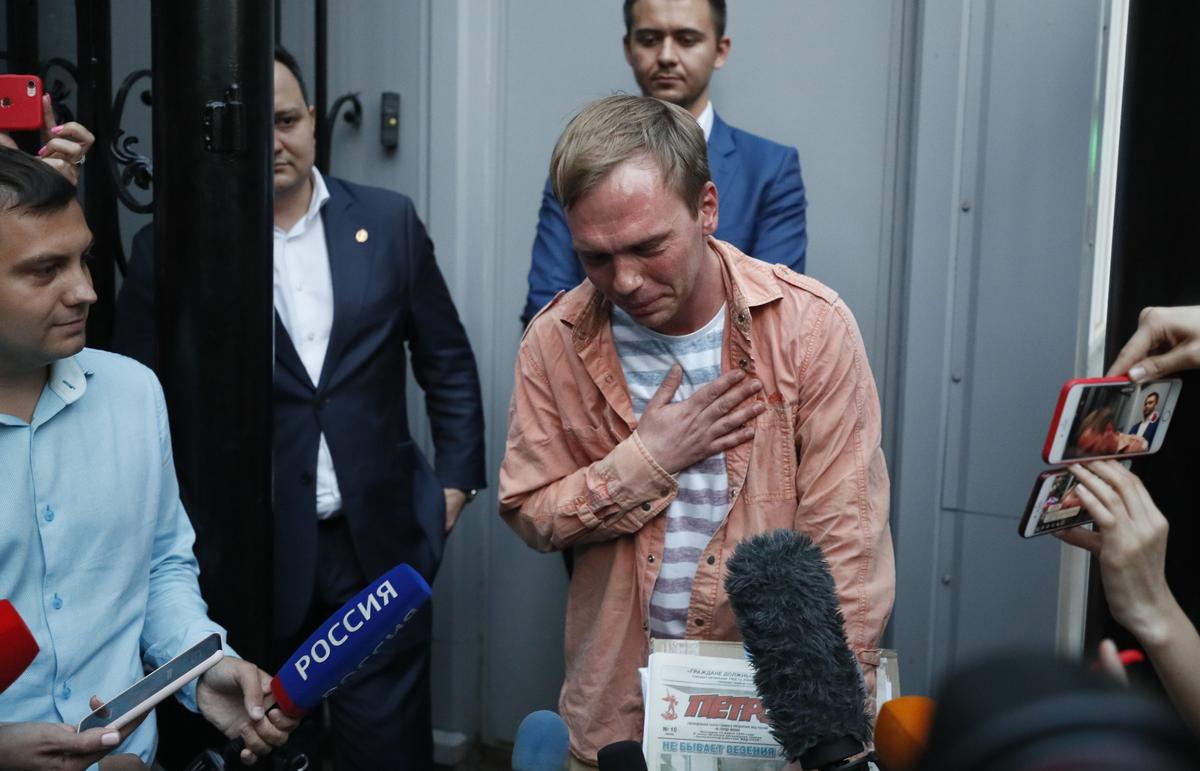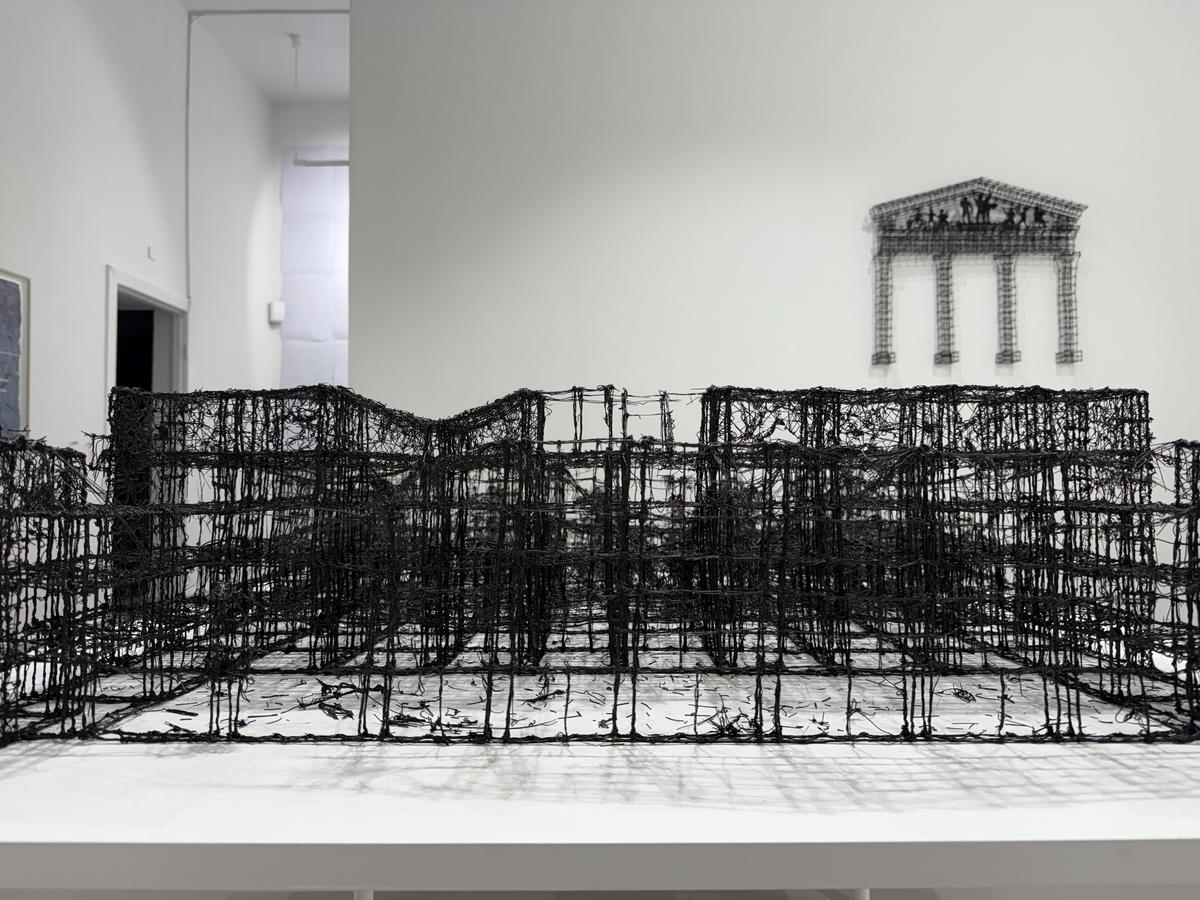


In an attempt to highlight the funding crisis it is facing, Meduza, one of Russia’s best-known and most-respected media outlets in exile, digitally redacted many of the headlines on its Russian homepage on Monday to show readers which stories it would be unable to publish in Russia.
The black rectangles, which can be removed simply by placing the cursor over them, could also be a taste of what Meduza readers can expect if the publication is unable to plug the hole in its finances, however.
Last week, editor-in-chief Ivan Kolpakov announced that Meduza was on the verge of bankruptcy and issued a distress call urgently asking its readers for financial support, adding that without another 15,000 subscribers agreeing to make monthly donations of at least €8, more layoffs and less content were inevitable.
Meduza, which has been based in the Latvian capital Riga since its founding in 2014, reminded its readers that it had been branded a “foreign agent” as well as an “undesirable organisation” by the Kremlin, its content had been blocked and banned inside Russia, and that its journalists had been “attacked, prosecuted, exiled, poisoned, and arrested”.

Meduza journalist Ivan Golunov leaves the Interior Ministry in Moscow after a case against him for attempted drug dealing collapses due to a lack of evidence, 11 June 2019. Photo: EPA/SERGEI ILNITSKY
“We’ve once again had to cut everyone’s salaries, without exception, just as we did in 2021,” Kolpakov told Novaya Europe, referring to budget cuts that became necessary for Meduza four years ago when it was declared a “foreign agent” by the Russian government.
“We’ve laid off 15% of our staff — international professionals whom we would not have let go in normal circumstances. We’ve cut unnecessary expenses, even though we haven’t really had any for a long time. We have also restructured the editorial team without downing tools for a minute.”
One of the reasons Meduza finds itself in trouble are the massive cuts made by the Trump administration to foreign aid budgets, and the dissolution of the United States Agency for International Development (USAID) in particular.
Kolpakov called the situation “critical” and noted that a war of attrition had been waged against the publication for four years.
Though Meduza says it has never been dependent on US grants, the collapse of international support for the non-profit sector has inevitably taken its toll on Meduza too, with fierce competition for the dwindling number of grants and other funding options that remain.
“As part of our crowdfunding campaign, we decided to blackout content that we’d be unable to publish if Meduza were subject to Russian censorship,” Meduza wrote. “Honestly, we have turned ourselves inside out just to make it to autumn. But we do not know what to do next. We have run out of resources.”
Founded in 2014, the same year that Russia illegally annexed the Crimean Peninsula and began a proxy war against Ukrainian forces in Donbas, Meduza was the brainchild of Galina Timchenko, the former editor-in-chief of online news outlet Lenta.ru, who had just been forced out of her job for refusing to toe the increasingly inflexible Kremlin line.

A 3D pen and graphite plastic model of the destroyed Mariupol Drama Theatre, part of Sergei Prokofiev’s work Hell, on display at Meduza’s No Exhibition in Berlin, May 2025. Photo: Tom Masters
Taking much of the Lenta.ru newsroom with her into exile in Latvia, Timchenko built Meduza into a formidable journalistic force that quickly became a thorn in the side of the Russian authorities. An unofficial harassment campaign against Meduza has been being waged for over a decade, including the 2019 arrest of journalist Ivan Golunov, whose work investigating corruption had already earned him threats, on fabricated drug charges.
“Russia’s independent media landscape has never looked so bleak,” says Chloe Arnold, a former BBC correspondent who now researches the history of the free press in Russia at the University of Aberystwyth in Wales.
“There are now almost no Russian news outlets holding Vladimir Putin’s government to account, something Meduza has done consistently and effectively, particularly since Russia’s full-scale invasion of Ukraine,” Arnold adds. “If Meduza were to close, it would be a tragedy for Russian independent media.”
You can sign up to make a one-time or regular donation to Meduza here
The Russian government has banned independent media. We were forced to leave our country in order to keep doing our job, telling our readers about what is going on Russia, Ukraine and Europe.
We will continue fighting against warfare and dictatorship. We believe that freedom of speech is the most efficient antidote against tyranny. Support us financially to help us fight for peace and freedom.
By clicking the Support button, you agree to the processing of your personal data.
To cancel a regular donation, please write to [email protected]
VPNovaya
Help Russians and Belarusians Access the Truth

